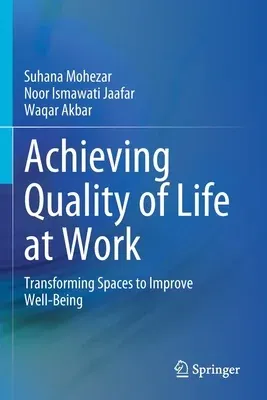This book provides an understanding and imaging of how a stress-free
workplace might be designed and implemented in the context of the 'new
normal.' Statistics show that more and more people are experiencing an
increase in work-related stress, and its impact on individual psychology
and well-being as well as organizational performance can be devastating.
Globally, the most recent data on work-related illnesses account for 2.4
million deaths. Against this backdrop, and taking stock of how the
pandemic is affecting the workplace and employee well-being, this book
proposes transformations in work spaces, from implementing effective
"greening" features, to more efficient technology-supported spaces. It
establishes links between workplace design and creativity, happiness and
productivity, confronting related issues such as generation gaps,
digital interruptions, collaborative work environments and
sustainability, and their respective connections with workspace
environment and well-being. The book situates this discussion within a
broader discussion on work and quality of life. Furthermore, the book
demonstrates how several sustainable development goals might be achieved
through transformed work spaces. Through an intersection between
organizational psychology, well-being and quality of life studies,
sociology, human resources, and ergonomics, this book is a timely
examination of work-related stress in relation to work spaces that
require rethinking and transformation in the throes, and wake, of the
pandemic.

